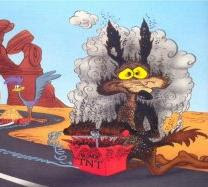Reputation is completely optional. Normal use of Stack Overflow — that
is, asking and answering questions, or submitting an edit — does not
require any reputation whatsoever.
If you'd like to help us run Stack Overflow, you'll need to earn some
reputation first. Reputation is a rough measurement of how much the
community trusts you. Reputation is never given, it is earned by
convincing fellow users that you know what you're talking about.
The primary way to gain reputation is by posting good questions and
useful answers. Your peers will vote on your posts, and those votes
will cause you to gain (or, in rare cases, lose) reputation:
answer is voted up +10
question is voted up +5
answer is accepted +15 (+2 to acceptor)
post is voted down -2 (-1 to voter)
A maximum of 30 votes can be cast per user per day, and you can earn a
maximum of 200 reputation per day (although accepted answers and
bounty awards are immune to this limit). Please note that votes for
posts marked "community wiki" do not generate reputation.
The other way to gain reputation is by suggesting edits to existing
posts as a new registered user. Each edit will be peer reviewed, and
if it is accepted, you will earn +2 reputation. You can only earn a
maximum of +1000 total reputation through suggested edits, however.
Amass enough reputation points and Stack Overflow will grant you
additional privileges:
15 Vote up
15 Flag for moderator attention
50 Leave comments†
100 Edit community wiki posts
125 Vote down (costs 1 rep)
200 Reduced advertising
250 Vote to close, reopen, or migrate your questions
500 Retag questions
1000 Show total up and down vote counts
1500 Create new tags
2000 Edit other people's posts, vote to approve or reject suggested edits
3000 Vote to close, reopen, or migrate any questions
5000 Vote to approve or reject suggested tag wiki edits
10000 Vote to delete closed questions, access to moderation tools
15000 Protect questions to prevent answers by new users
20000 Vote to delete negatively voted answers and stronger question
deletion votes
† you can always comment on your questions and answers, and any
answers to questions you've asked, even with 1 rep.
At the high end of this reputation spectrum there is little difference
between users with high reputation and ♦ moderators. That is very much
intentional. We don't run Stack Overflow. The community does.
What if I don't get a good answer?
First, make sure you've asked a good question. In order to get good
answers to your question, you may need to put additional effort into
your question. Edit your question to provide status and progress
updates. Document your own continued efforts to answer your question.
This will naturally bump your question and get more people interested
in it.
If, despite your best efforts, you feel questions aren't getting good
answers, you can help by offering a bounty. Slice off anywhere from
+50 to +500 of your own hard-earned reputation and attach it to any
question as a bounty. The bountied question will appear with a special
indicator in all question lists, and it will also be visible on the
home page Featured tab for the duration of the bounty period.
Click the bounty award icon next to each answer to permanently award
your bounty to the answerer. There are a few other rules around
bounties:
Questions must be at least 2 days old to be eligible for a bounty.
Users must have at least 75 reputation to offer a bounty.
There can only be 1 active bounty per question and per user at any
given time.
Once initiated, the bounty period lasts 7 days.
After starting a bounty, you must wait 1 day before awarding it.
If you do not award your bounty within 7 days, the highest voted
answer created after the bounty started with at least 2 upvotes will
be awarded half the bounty amount.
In any case, you will always give up the amount of reputation
specified in the bounty, so if you start a bounty, be sure to follow
up and award your bounty to the best answer!
As an additional bonus, bounty awards are immune to the daily
reputation cap and community wiki mode.
